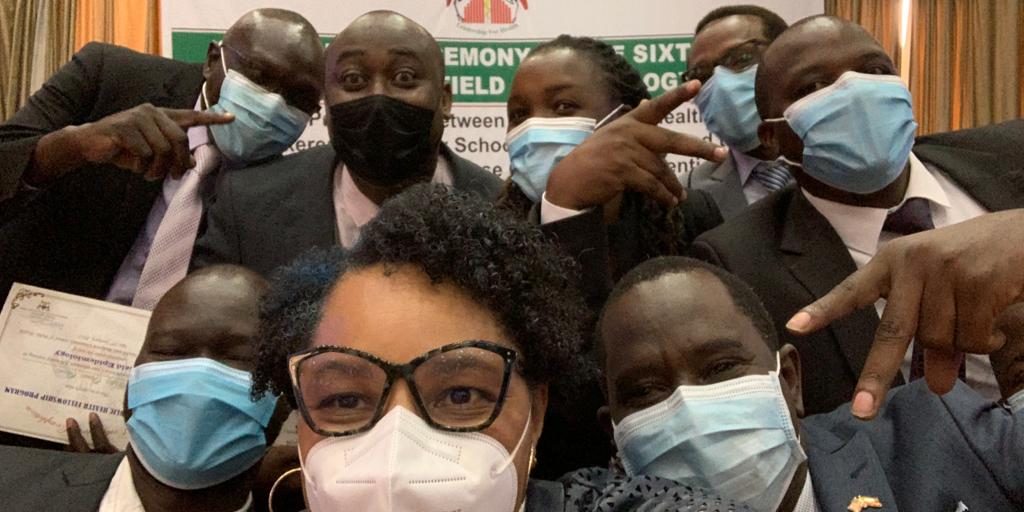Uganda will need to train more field epidemiologists in order to make major strides in disease surveillance and handling outbreaks before spiralling out of control.
This was revealed by Dr Alex Riolexus Ario, the Director of the Uganda National Institute of Public Health as a batch of 13 specialists were graduating as field epidemiologists on Thursday.
Ario said the new fellows bring the total of post-masters students trained under the two year specialist programme to just 65 yet it was started more than five years ago. The country, he says, needs to have at least one of such specialists at the district level to help identify problems faster and handle public health emergencies better.
The highest cohort they have admitted ever for the programme is 15 fellows who are enrolled for the year 2022. This is partly due to the fact that the course is tedious and requires one to either resign from their job or take unpaid leave to be deployed in the Ministry of Health for two years.
He says they are doing a curriculum review to add other critical aspects in public health like informatics. However, they are impeded by lack of funds since the course is money intensive considering that the fellow has to be in the field and establish systems that would help tackle specific health challenges.
The course is entirely donor-funded by the US Centers for Disease Control and Ario says they have been looking for more funding such that the number of trainees can increase but also add other units that are critical for disease prevention and control.
“The U.S. government believes strongly in “investing in people.” Therefore, one of the key aspects of U.S. government assistance to the Ugandan health system is training local public health professionals like you to help their fellow Ugandans prevent disease,” said the U.S. Ambassador Natalie E. Brown at Uganda Public Health Fellowship Program Graduation Ceremony.
Though our global programs, such as the Public Health Fellowship Program that has gathered us here today, we aim for sustained impact through the national workforce, like the fellows who are graduating today, said H.E Brown.
The fellows led more than 70 major COVID-19 response activities, including studies on household COVID-19 transmission during home-based care, vaccine hesitancy and effectiveness, epidemiologic cluster investigations, contact tracing, facility preparedness assessments, and border hotspot studies.
Their efforts have strengthened Uganda’s ability to detect and respond to public health emergencies, particularly COVID-19, by providing critical, timely data to inform the response.
Dr Daniel Kyabayinze, the Director of Public Health in the Ministry of Health said this graduation is timely when the Ministry of Health is grappling with COVID-19 vaccine uptake. With more than 20 million doses of the vaccine in stores but just four million people fully vaccinated, he said these can be helpful in establishing what exactly is keeping people away from the jab.
While deployed at the Ministry of Health, some of the graduating fellows got involved in investigating the COVID-19 outbreak in Moroto prison in September 2020, an outbreak at a secondary school in Kampala and how to handle home-based COVID-19 care in western Uganda.
Other work was done on suspected anthrax outbreaks in Kapchorwa and surveillance of Acute Flaccid paralysis as a symptom of polio.
This program is supported by the U.S. government through the Centers for Disease Control and Prevention, or CDC, and represents the top tier of the Field Epidemiology Training Program, or FETP. FETP’s aim is to improve a country’s capacities to respond to public health emergencies across different levels of the health system. In Uganda, these include the three-month FETP Frontline program, the nine-month FETP Intermediate program and the two-year Public Health Fellowship Program, or PHFP.
“I urge all fellows to build on these experiences to carry on the mantle of preventing, detecting, and responding to disease outbreaks and improving public health. I hope we can deploy many of you not only here in Uganda, but to other countries affected by outbreaks,” said HE Brown.

